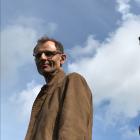Political commitment towards the continuing inclusive development of Africa's education sector was confirmed during the 2012 ADEA Triennale, which took place during February in Ouagadougou. Members of youth organisations now call for that commitment to be turned into measurable results.
In February 2012, the Association for the Development of Education in Africa (ADEA) held its Triennale Meeting in Ougadougou , attended by four Heads of State, more than 60 Ministers, senior officials from education, Technical and Vocational Education and Training (TVET) organisations, employers and over 1000 education practitioners. The sheer number and high level of participants showed the continent's dedication to the current political dialogue on placing education and training firmly into African countries’ development policies.
Despite the great achievements in education in Africa over the last ten years, particularly in Education for All, challenges remain tremendous as education and curricula have to be adapted to changing economies and societies. Many stakeholders and education specialists agree that education policy should be geared towards capacities that will equip active citizens and performing economic actors to be part of sustainable development.
Supporting the event were representatives of cooperation agencies, civil society, the industrial and private sectors and the research community. Kristian Schmidt, Director of Human and Society Development, who headed a delegation from the European Commission, highlighted the political dimension of the support to education: "The Arab Spring has cast light on the role of youth. We have to listen to them. How to develop education systems which respond to today’s challenges? North Africa has shown us that education alone does not create jobs. Formal education is not sufficient to prepare young people to enter the labour market."
On a more practical level, he drew attention to the fact that "the programming process of the financial envelope of the European Development Fund for 2014-2020 will soon start in the European Commission Delegations. Together with our development partners we will decide which part should be granted to education."
According to Jacques Malpel, an education specialist from EuropeAid, the scope of the 2012 Triennale surpassed previous gatherings, which had focused on the traditional aspects of education. “The central role played during the conference by key actors like the youth and the economic sector made the difference in introducing the major paradigm shifts that are necessary,” he said.
“At this Triennale the focus has been more on youth, who are eager to play their role and take responsibilities in the development of their country,” he continued. “For that they need a strong foundation in basic education, adequate technical and vocational training to enhance their skills, and employability. In addition, they need access to the labour market and the world of work, as employees and as self-employed, access to credit and micro-credit. Training is not sufficient without insertion capacities.”
With youth representing more than 50% of the population in many African countries, the challenges are enormous. Participants at the conference agreed that all resources should be mobilised, not only through the public sector but also through Public Private Partnerships, and to draw on the human, technical and even financial resources available through the Diaspora.
Representatives of the economic sector emphasised their need for a skilled workforce and expressed their interest to engage in active partnerships with national authorities. They asked for a balanced approach to place education and training at the core of a country’s national growth and development strategy.
The effects of the Triennale will only be seen when the political commitment voiced there is transformed into policy reforms. To this end, the Secretary of ADEA, Ahlin Byll Cataria, advised that ADEA will be elaborating a report on the main findings of the Triennale, focusing on recommended priority areas to follow up.
Youth representatives from a number of organisations, and notably the African Union Commission, voiced their intention to be involved in the process.
“(We) would like the opportunity to be key actors and beneficiaries of this implementation process,” said Lawrence Muli, the Advocacy and Communications Associate of the Youth Division, African Union Commission. “We have been involved throughout the consultation, we should not be left out after the meeting is over. We want to be involved in developing the mechanism that will actually see the implementation of all the recommendations.”
Mr Muli called for Ministers to return to their countries with the recommendations and, at the next Triennale, proposed that they are required to give an account of the implementation of the recommendations, specifically those addressing youth issues.
“We want a statistical framework that is going to report the youth development index within the area of education, to ensure that each recommendation can be measured against the development process of a particular country, “he said. “This will allow youth to participate fully in the implementation framework of the recommendations from this Triennale.”
For more information about the Triennale, and EU support to education for all in developing countries, please visit the Public Group on Education and Development at capacity4dev.eu.
Contributors to this collaborative piece: Jacques Malpel, Marja Karjalainen and Paul Riembault. The views, opinions and the content herein do not represent the official view of the European Commission. Multimedia and collaboration facilitated by EuropeAid's capacity4dev.eu team



Comments (1)
Log in with your EU Login account to post or comment on the platform.
This is a great Piece. KFDWB is looking for potential business partnerships, sponsors, funders, investors to provide development Training program and practices in the local language and official language on a cloud platform within it development support framework - See more at:
http://capacity4dev.ec.europa.eu/aid-support/minisite/chance-everywhere…